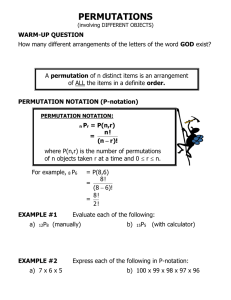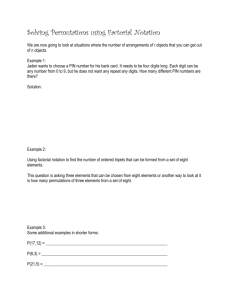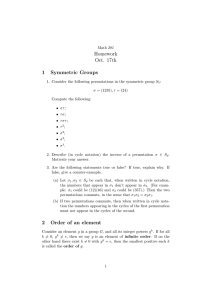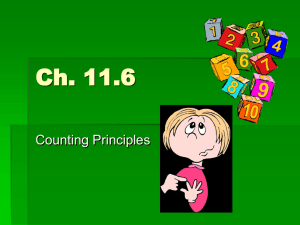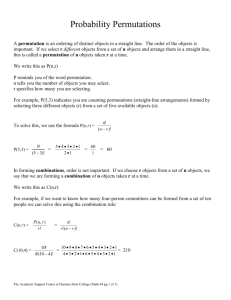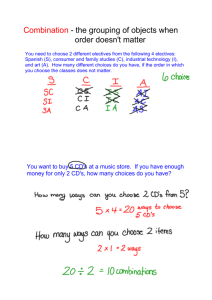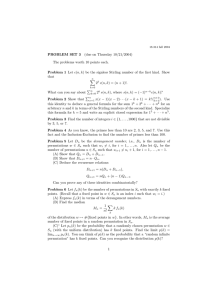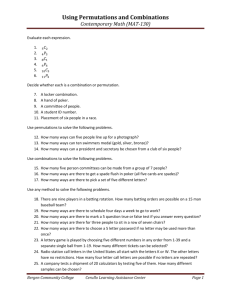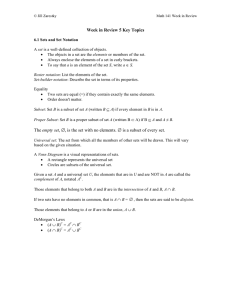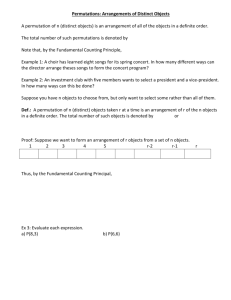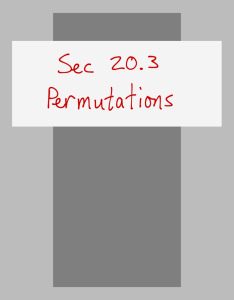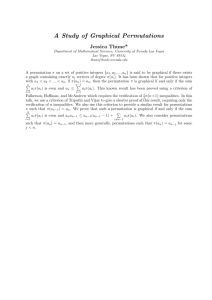Chapter 13 sec 3
advertisement
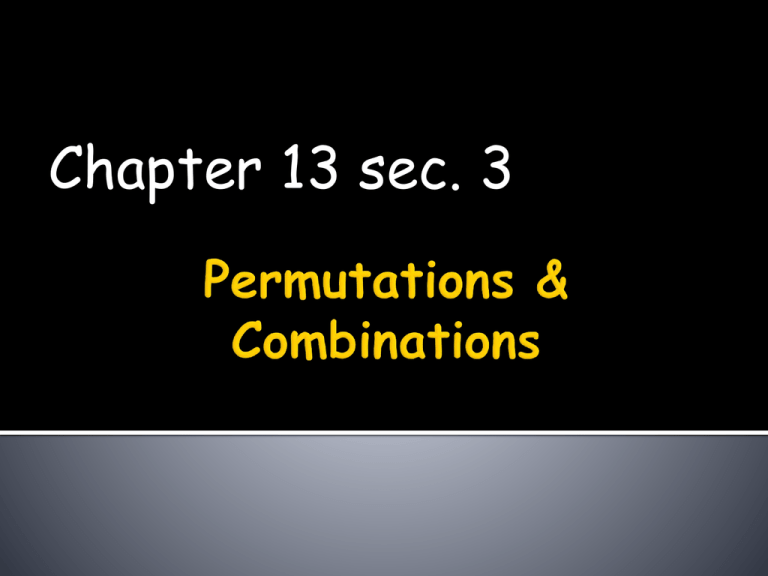
Chapter 13 sec. 3 Def. Is an ordering of distinct objects in a straight line. If we select r different objects from a set of n objects and arrange them in a straight line, this is called permutation of n objects taken r at a time. Order matters!!!!! Denoted by P(n,r) What does P(5,3) mean? n is the number of objects from which you may select. r is the number of objects that you are selecting. That you are counting permutations formed by 3 different objects from a set of five available objects. How many permutations are there of the letters z, r, t, and w. Write the answer in P(n,r) notation. Solution: One way is to make a list. (too long.) Using the slot diagram. Without repetition, there are 4 letters which can be for the first position, 3 for the second, and so on. 1st letter 2nd 3rd 4th x 4 x 3 x 2 1 Therefore P(4,4) = 24 permutations. Find the number of permutations. Write it as P(n,r) notation. Eight objects taken three at a time. Questions to think about. 1. How many objects (n)? 2. The number of objects being selected (r)? There are 8 objects which is n. 3 objects are being selected. (r) P(8,3) = 8 X 7 X 6 = 336 n!, called n factorial n•(n-1)•(n-2)•∙∙∙•2•1 0!=1 6! = 6x5x4x3x2x1 = 720 (6-3)! 3!/4! = 3! = 3x2x1 = 6 =(3x2x1)/(4x3x2x1) = 1/4 To help you compute P(n,r)! P(n,r) = n! /(n-r)! Find the Permutation A) 9 objects taken 4 at a time. B) 20 objects taken 7 at a time. C) 5 objects taken 2 at a time. A) P(9,4) = 9!/5! = 9x8x7x6=3024 B) P(20,7) = 20!/13!= 20x19x18…x14 = 390,700,800 C) P(5,2) = 5!/3! = 20 Def. If we choose r objects from a set of n objects, we say that we are forming a combination of n objects taken r at a time. Notation C(n,r) = P(n,r) / r! = n! / [r!(n-r)!] We are only concerned only with choosing a set of elements, but the order of the elements is not important. This means that if the permutations number is big, the combination number will be smaller. Find the Combinations A) Eight objects taken three at a time. B) Nine objects taken six at a time. C) How many 3 elements sets can be chosen from a set of 5 objects. A) C(8,3) = 8!/(3!5!) = 8x7x6/6= 56 B) C(9,6) = 9!/(6!3!) =9x8x7/3x2=84 C) C(5,3) = 10 In the game of poker, five cards are drawn from a standard 52-card deck. How many different poker hands are possible? Solution: C(52,5) = 2, 598, 960 Give your answers using P(n,r) or C(n,r) notation. The key is if order matters or not. 1. Annette has rented a summer house for next semester. She wants to select four roommates from a group of six friends. 2. There are 7 boats that will finish the America’s Cup yacht race. 3. A bicycle lock has three rings with the letters A through K on each ring. To unlock the lock, a letter must be selected on each ring. Duplicate letters are not allowed, and the order in which the letters are selected on the rings does not matter. A) C(6,4) B) P(7,7) C) C(11,3)
